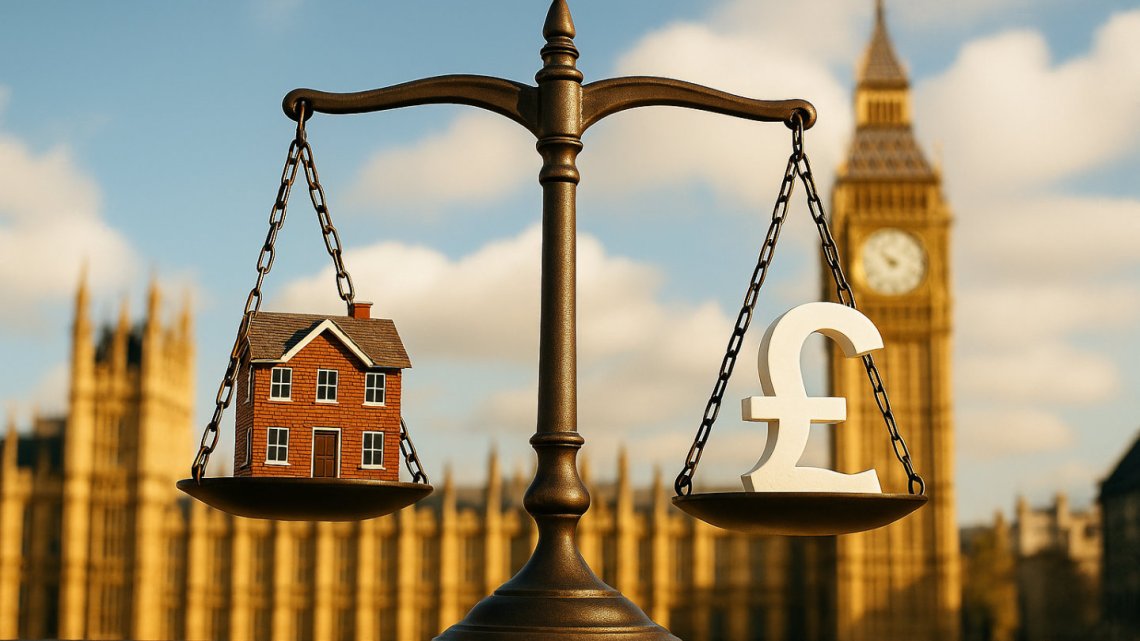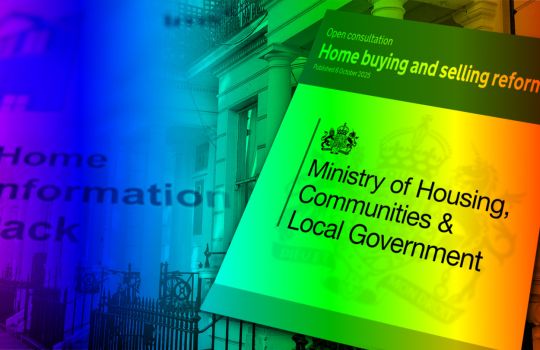Property Tax Shake-Up?

As Chancellor Rachel Reeves considers sweeping reforms to the UK’s property tax system, a national debate is intensifying: who stands to gain, who might lose - and what kind of housing market will emerge from the shake-up?
From scrapping stamp duty for buyers to introducing seller-side taxes, annual property levies, and even capital gains on primary residences, the proposals represent the most ambitious overhaul in decades. But while some hail the plans as a long-overdue correction, others warn they could punish aspiration and destabilise the market.
The Case for Reform: Building a Fairer, More Functional System
1. Easing the Path for First-Time Buyers
For many young people, homeownership feels increasingly unattainable. Stamp duty adds thousands to the upfront cost of even modest homes, particularly in high-demand areas.
Supporters argue that removing stamp duty for buyers would:
- Lower entry costs, especially in expensive regions.
- Level the playing field between first-time buyers and equity-rich movers.
- Encourage mobility, helping people relocate for work or family.
2. Updating an Outdated Tax Model
Council tax is still based on 1991 property valuations and is considered an outdated system that often results in disparities.
Replacing it with annual levies tied to current market values could:
- More accurately reflect real wealth.
- Provide stable, predictable funding for local services.
- Incentivise better use of housing stock.
3. Closing Loopholes in Property Wealth
Extending capital gains tax (CGT) to high-value primary residences may seem radical, but it’s standard practice in countries like the US and Australia.
The rationale? Property isn’t just shelter - it’s a major asset class. Many homeowners have seen gains of £500,000 or more, yet pay no tax on that wealth. Reformers argue this distorts generational fairness and entrenches inequality.
| Feature - scroll to continue with content... |
| continue reading article... |
The Case Against: Penalising Success and Undermining Ownership
1. Hitting the Aspirational Middle Class
Critics say the reforms target those who’ve played by the rules - saved diligently, paid taxes, and invested in property.
Concerns include:
- Seller-side taxes adding thousands to the cost of moving.
- Annual levies turning homes into financial burdens, especially for pensioners or those asset-rich but income-poor.
- CGT on main residences disrupting inheritance planning and retirement security.
2. Risking Market Paralysis
New taxes could discourage homeowners from selling or downsizing, leading to:
- Reduced housing mobility.
- Tighter supply in desirable areas.
- Stagnant prices as taxes erode perceived gains.
3. A Blunt Instrument for a Nuanced Problem
Annual property taxes don’t account for individual circumstances. A retired widow in a now-valuable home could face unaffordable yearly bills. High property value doesn’t always mean high disposable income - especially in regions like London or Surrey.
Critics ask: Will exemptions be fair and targeted? Or will this be another one-size-fits-all policy that misses the mark?
A Delicate Balancing Act
Reeves is attempting something no Chancellor has seriously tackled in decades: modernising property taxation. There’s logic in rebalancing who pays and how - but fairness is subjective. What feels just to one generation or income group may feel punitive to another.
Potential Winners
- First-time and lower-income buyers, freed from stamp duty.
- Younger generations struggling to compete with untaxed property wealth.
- Local councils, if annual levies replace underfunded budgets.
- Long-term renters, if reforms boost housing supply.
Potential Losers
- Homeowners in high-value areas, especially retirees or cash-poor households.
- Sellers, now facing new transactional taxes.
- Families inheriting property, if CGT is extended to main homes.
- Buy-to-let investors, if council tax or CGT rules tighten.
Conclusion: Reform or Revenue Grab?
Is this a long-overdue correction - or a thinly veiled cash grab? That’s the emotional and political heart of the debate. What’s clear is that these proposals won’t go unnoticed. For many, the idea of homeownership as a stable and responsible investment for their future - and that of their family - may now be under review.
The autumn budget may bring clarity. Until then, homeowners across the UK are left wondering whether the homes they built their futures on are about to become just another source of tax.
This article is for informational purposes. Always seek professional advice before making any property decisions.














